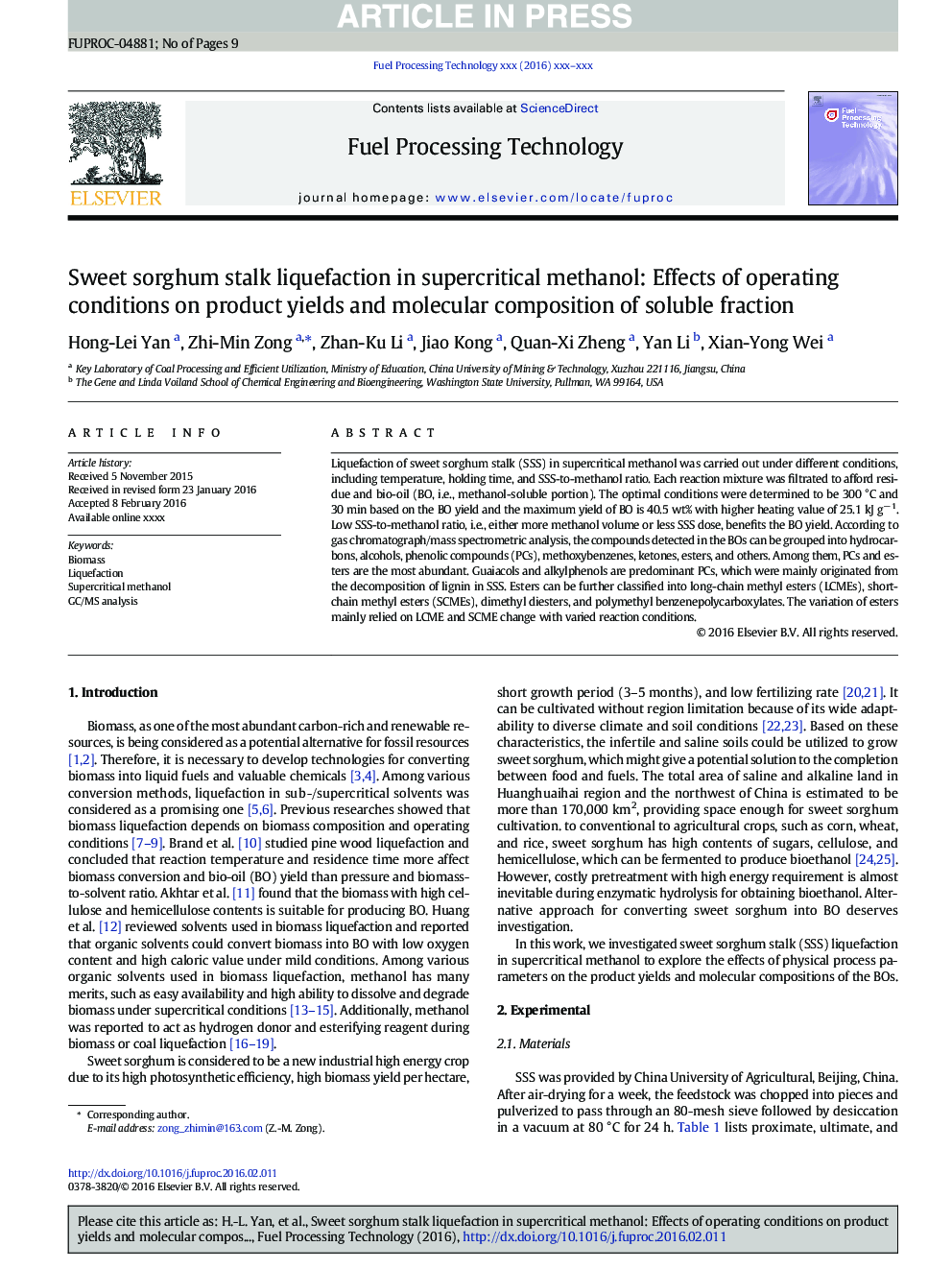| Article ID | Journal | Published Year | Pages | File Type |
|---|---|---|---|---|
| 4907134 | Fuel Processing Technology | 2017 | 9 Pages |
Abstract
Liquefaction of sweet sorghum stalk (SSS) in supercritical methanol was carried out under different conditions, including temperature, holding time, and SSS-to-methanol ratio. Each reaction mixture was filtrated to afford residue and bio-oil (BO, i.e., methanol-soluble portion). The optimal conditions were determined to be 300 °C and 30 min based on the BO yield and the maximum yield of BO is 40.5 wt% with higher heating value of 25.1 kJ gâ 1. Low SSS-to-methanol ratio, i.e., either more methanol volume or less SSS dose, benefits the BO yield. According to gas chromatograph/mass spectrometric analysis, the compounds detected in the BOs can be grouped into hydrocarbons, alcohols, phenolic compounds (PCs), methoxybenzenes, ketones, esters, and others. Among them, PCs and esters are the most abundant. Guaiacols and alkylphenols are predominant PCs, which were mainly originated from the decomposition of lignin in SSS. Esters can be further classified into long-chain methyl esters (LCMEs), short-chain methyl esters (SCMEs), dimethyl diesters, and polymethyl benzenepolycarboxylates. The variation of esters mainly relied on LCME and SCME change with varied reaction conditions.
Related Topics
Physical Sciences and Engineering
Chemical Engineering
Chemical Engineering (General)
Authors
Hong-Lei Yan, Zhi-Min Zong, Zhan-Ku Li, Jiao Kong, Quan-Xi Zheng, Yan Li, Xian-Yong Wei,
